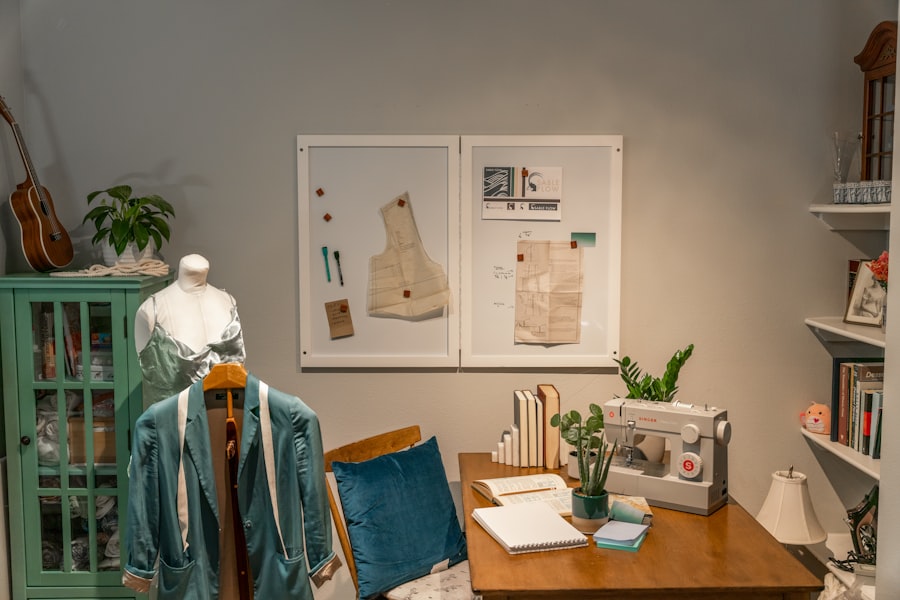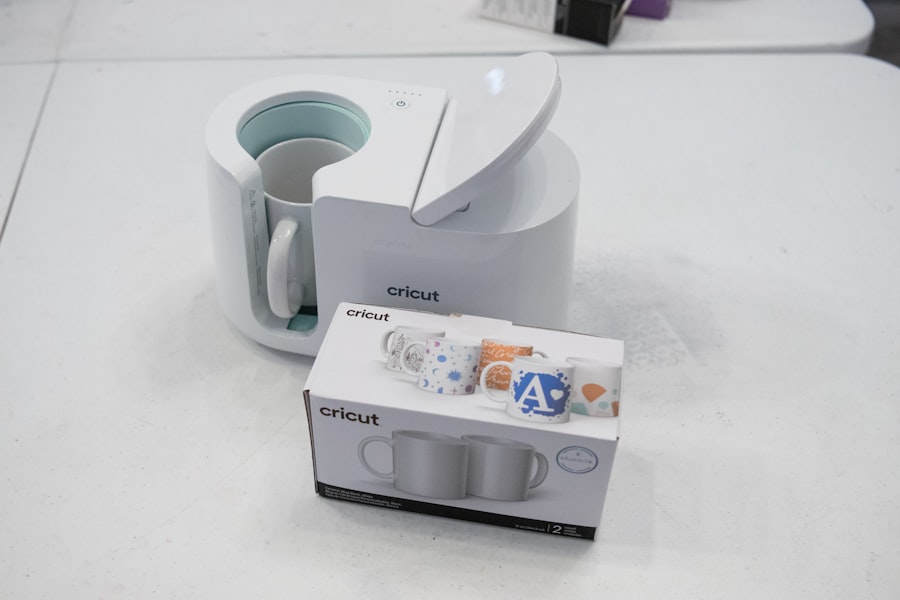Creativity is a complex and multifaceted process that involves generating new ideas, concepts, and solutions. It is not limited to artistic endeavors but is also essential in problem-solving, innovation, and everyday decision-making. The creative process typically involves several stages, including preparation, incubation, illumination, and verification.
During the preparation stage, individuals gather information, explore different perspectives, and immerse themselves in the subject matter. This stage is crucial for building a strong foundation and understanding the context in which the creative work will take place. The next stage, incubation, involves stepping away from the problem or idea and allowing the subconscious mind to work on it.
This often leads to unexpected insights and connections that can fuel the creative process. The illumination stage is characterized by sudden breakthroughs or “aha” moments when the solution or idea becomes clear. Finally, the verification stage involves refining and testing the idea to ensure its viability.
Understanding these stages can help individuals navigate the ups and downs of the creative process and approach it with patience and perseverance. By recognizing that creativity is not always a linear process and that breakthroughs often come after periods of incubation, individuals can cultivate a more sustainable and resilient approach to their creative endeavors.
Key Takeaways
- The creative process involves generating, developing, and communicating new ideas and solutions.
- Embracing a growth mindset involves believing in the ability to develop and improve skills through dedication and hard work.
- Engaging in divergent thinking involves exploring multiple possible solutions and perspectives to a problem.
- Practicing mindfulness and meditation can help clear the mind and enhance focus and creativity.
- Seeking inspiration from different sources can help spark new ideas and perspectives.
- Collaborating with others can bring diverse perspectives and skills to the creative process.
- Embracing failure and learning from mistakes is an important part of the creative process and can lead to growth and innovation.
Embracing a Growth Mindset
The Power of Embracing Challenges
Individuals with a growth mindset see challenges as opportunities for growth and are more likely to persevere in the face of setbacks. This mindset is particularly important in the creative process, where experimentation, risk-taking, and resilience are key components.
Fostering a Culture of Curiosity and Openness
Embracing a growth mindset allows individuals to approach creative endeavors with a sense of curiosity and openness. Instead of being discouraged by initial failures or obstacles, they see them as learning opportunities and stepping stones toward success.
Cultivating Resilience and Continuous Improvement
This mindset also encourages individuals to seek feedback, learn from criticism, and continuously improve their skills. By reframing challenges as opportunities for growth and development, individuals can cultivate a more positive and resilient approach to their creative pursuits.
Engaging in Divergent Thinking

Divergent thinking is a key component of the creative process and involves generating multiple ideas or solutions to a problem. Unlike convergent thinking, which focuses on finding a single correct answer, divergent thinking encourages individuals to explore a wide range of possibilities and perspectives. This open-ended approach can lead to innovative and unconventional ideas that may not have been considered otherwise.
Engaging in divergent thinking requires individuals to suspend judgment, think flexibly, and explore different angles and possibilities. This can be achieved through brainstorming sessions, mind mapping, or simply allowing oneself to freely explore different ideas without self-censorship. By embracing divergent thinking, individuals can break free from conventional patterns of thought and discover new and unexpected connections that can fuel their creative process.
Practicing Mindfulness and Meditation
Mindfulness and meditation are powerful tools for enhancing creativity and fostering a deeper connection with one’s inner thoughts and emotions. Mindfulness involves being fully present in the moment and paying attention to one’s thoughts, feelings, and surroundings without judgment. This practice can help individuals quiet the noise of their busy minds and tap into their inner creativity.
Meditation, on the other hand, involves training the mind to focus and redirect thoughts. This practice can help individuals cultivate a sense of calm and clarity, which are essential for nurturing creativity. By incorporating mindfulness and meditation into their daily routine, individuals can create a conducive environment for creative insights to emerge.
These practices can also help individuals manage stress, anxiety, and self-doubt, which are common barriers to creativity.
Seeking Inspiration from Different Sources
Creativity thrives on inspiration, and seeking inspiration from diverse sources can fuel the creative process. Whether it’s through art, nature, literature, music, or travel, exposing oneself to new experiences and perspectives can spark fresh ideas and insights. By immersing oneself in different cultures, traditions, and ways of thinking, individuals can expand their creative horizons and draw inspiration from unexpected places.
Seeking inspiration from different sources also involves being open to new ideas and perspectives. This can be achieved through engaging in conversations with people from different backgrounds, attending cultural events, or exploring new hobbies and interests. By actively seeking out diverse sources of inspiration, individuals can infuse their creative work with fresh perspectives and originality.
Collaborating with Others

Unlocking Collective Creativity
Collaboration is a powerful catalyst for creativity as it allows individuals to leverage the diverse skills, perspectives, and experiences of others. Working with a team can lead to synergistic ideas and solutions that may not have been possible through individual efforts alone.
Fostering a Sense of Community
Collaboration also fosters a sense of community and support, which can be invaluable in sustaining motivation and momentum throughout the creative process.
Key Elements of Effective Collaboration
Effective collaboration involves open communication, active listening, and a willingness to embrace different viewpoints. By creating a collaborative environment where all voices are heard and valued, individuals can harness the collective creativity of the group. This can lead to innovative breakthroughs and solutions that may not have been possible through solitary efforts.
Embracing Failure and Learning from Mistakes
Failure is an inevitable part of the creative process, but it is also a valuable opportunity for learning and growth. Embracing failure involves reframing setbacks as learning experiences and refraining from self-criticism or self-doubt. Instead of viewing failure as a reflection of one’s abilities or worth, individuals can see it as an essential stepping stone toward success.
Learning from mistakes involves reflecting on what went wrong, identifying areas for improvement, and adjusting one’s approach accordingly. This iterative process of trial and error is essential for refining ideas and solutions until they reach their full potential. By embracing failure as a natural part of the creative journey, individuals can cultivate resilience, adaptability, and a willingness to take risks in pursuit of their creative vision.
In conclusion, understanding the creative process involves recognizing its nonlinear nature and embracing the various stages involved in generating new ideas or solutions. Embracing a growth mindset is essential for nurturing creativity as it encourages individuals to see challenges as opportunities for growth and development. Engaging in divergent thinking allows individuals to explore multiple possibilities and perspectives, leading to innovative ideas.
Practicing mindfulness and meditation can help individuals tap into their inner creativity by fostering a sense of calm and clarity. Seeking inspiration from different sources can fuel the creative process by exposing individuals to new experiences and perspectives. Collaborating with others can lead to synergistic ideas and solutions that may not have been possible through individual efforts alone.
Embracing failure as a natural part of the creative journey allows individuals to cultivate resilience, adaptability, and a willingness to take risks in pursuit of their creative vision.
If you’re looking to improve your creativity skills, you may also be interested in learning about the wider role of unions in the workplace. This article from Careers Help discusses the importance of Unison and other unions in advocating for workers’ rights and creating a fair and safe working environment. Check it out here.
FAQs
What are creativity skills?
Creativity skills refer to the ability to generate new ideas, think outside the box, and solve problems in innovative ways. These skills involve originality, flexibility, and the ability to see connections between seemingly unrelated concepts.
Why are creativity skills important?
Creativity skills are important because they enable individuals to adapt to new situations, come up with unique solutions to problems, and think critically. These skills are valuable in both personal and professional settings, as they can lead to increased productivity, innovation, and success.
How can I improve my creativity skills?
There are several ways to improve creativity skills, including practicing brainstorming, engaging in activities that stimulate the mind (such as reading, art, or puzzles), seeking out new experiences, and challenging assumptions and traditional thinking patterns. Additionally, taking breaks, getting enough sleep, and maintaining a healthy lifestyle can also contribute to improved creativity.
Can creativity skills be learned?
Yes, creativity skills can be learned and developed over time. While some individuals may have a natural inclination towards creativity, anyone can improve their creative abilities through practice, exposure to new ideas, and a willingness to take risks and explore unconventional approaches.
How can creativity skills benefit me in the workplace?
Creativity skills can benefit individuals in the workplace by enabling them to come up with innovative solutions to challenges, think critically about complex problems, and adapt to changing circumstances. These skills can also lead to increased job satisfaction, improved communication, and a greater ability to collaborate with others.



